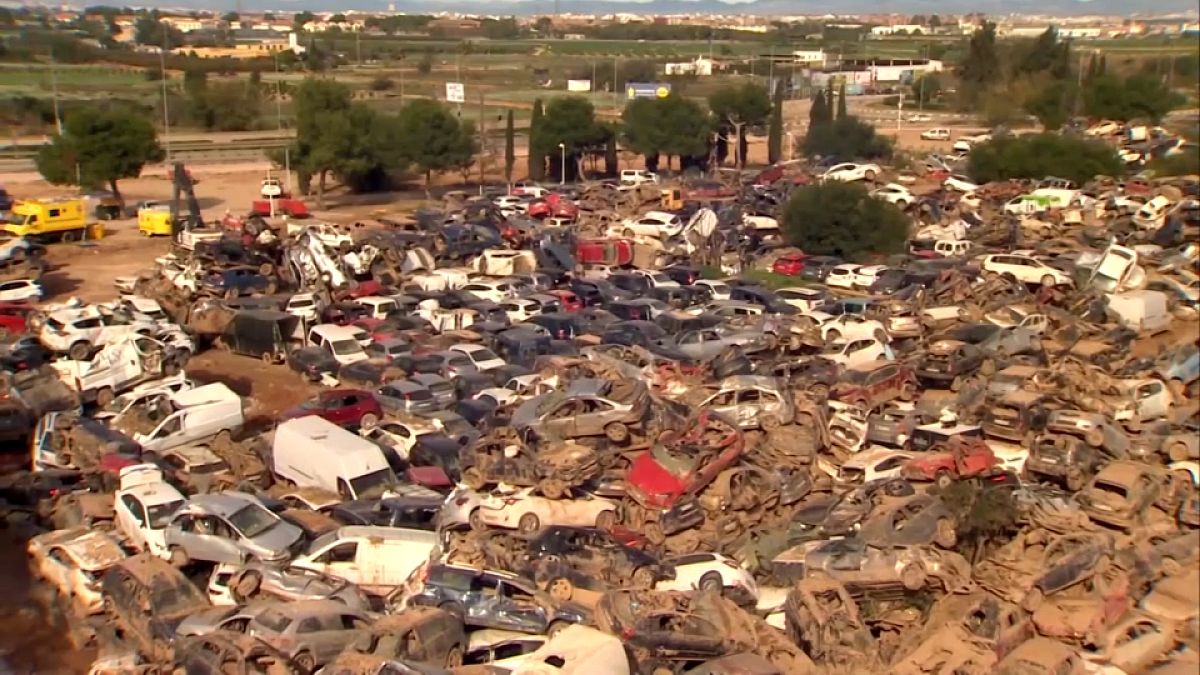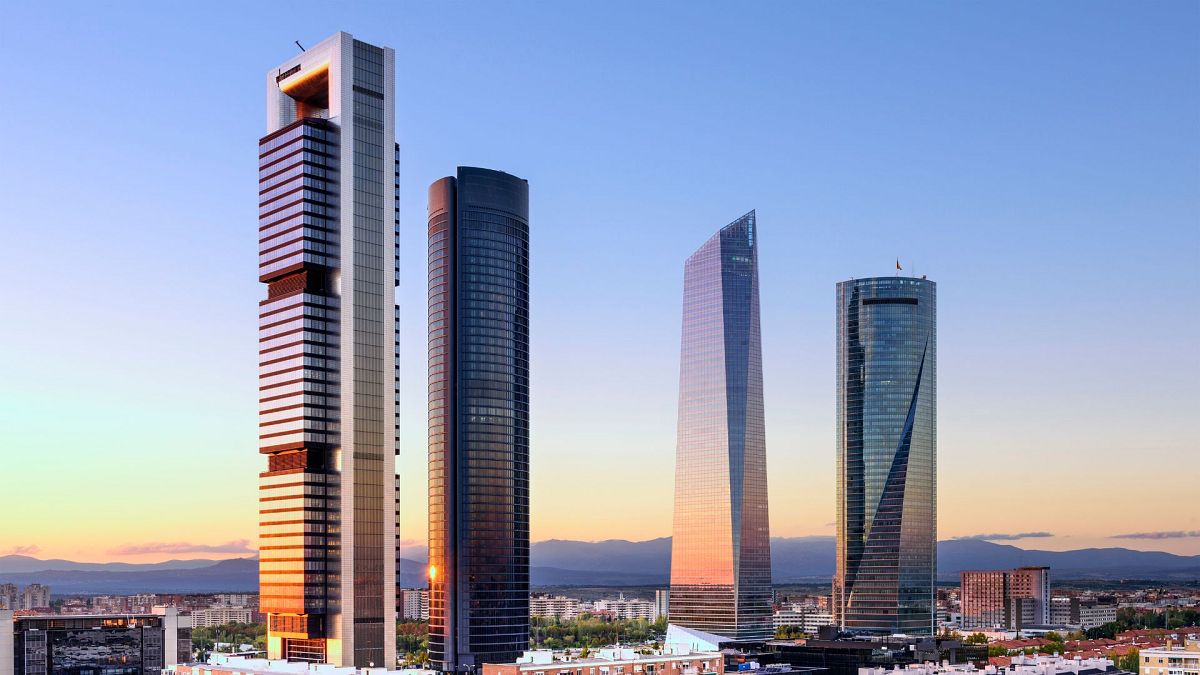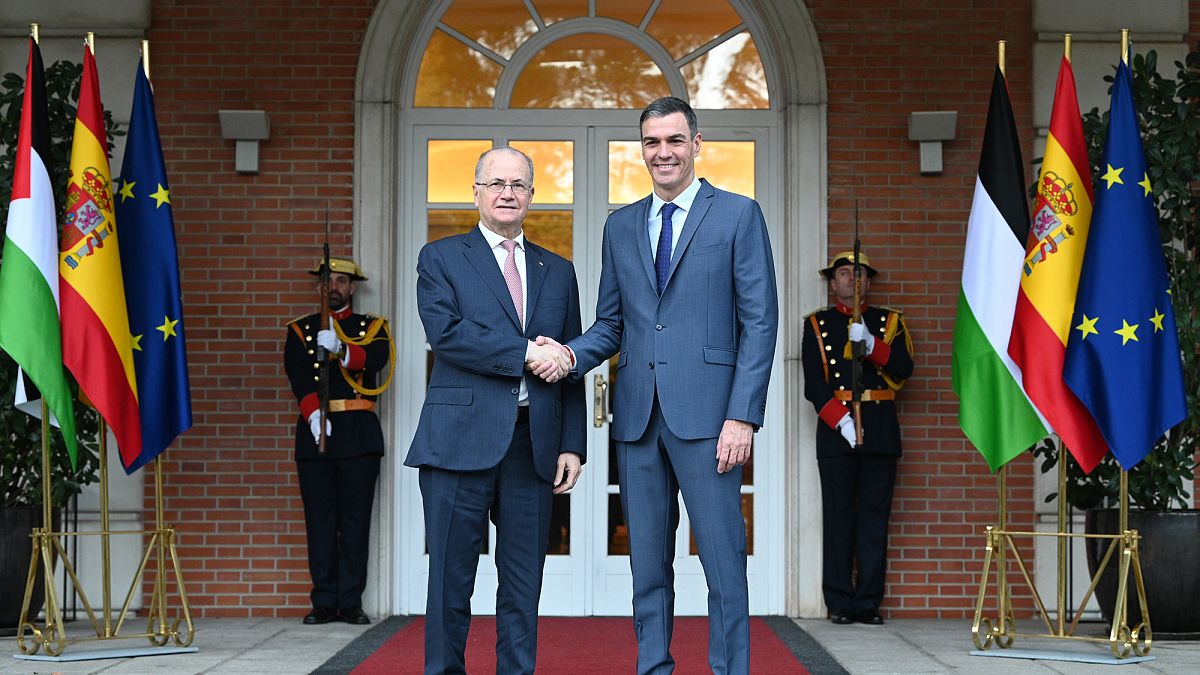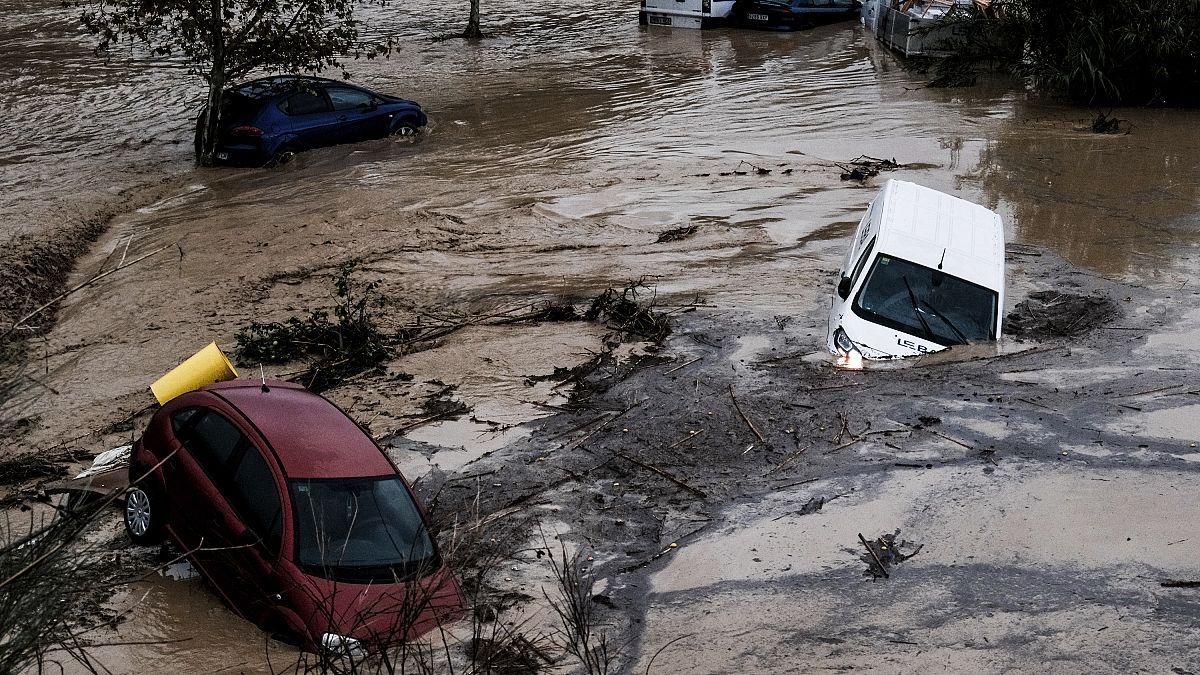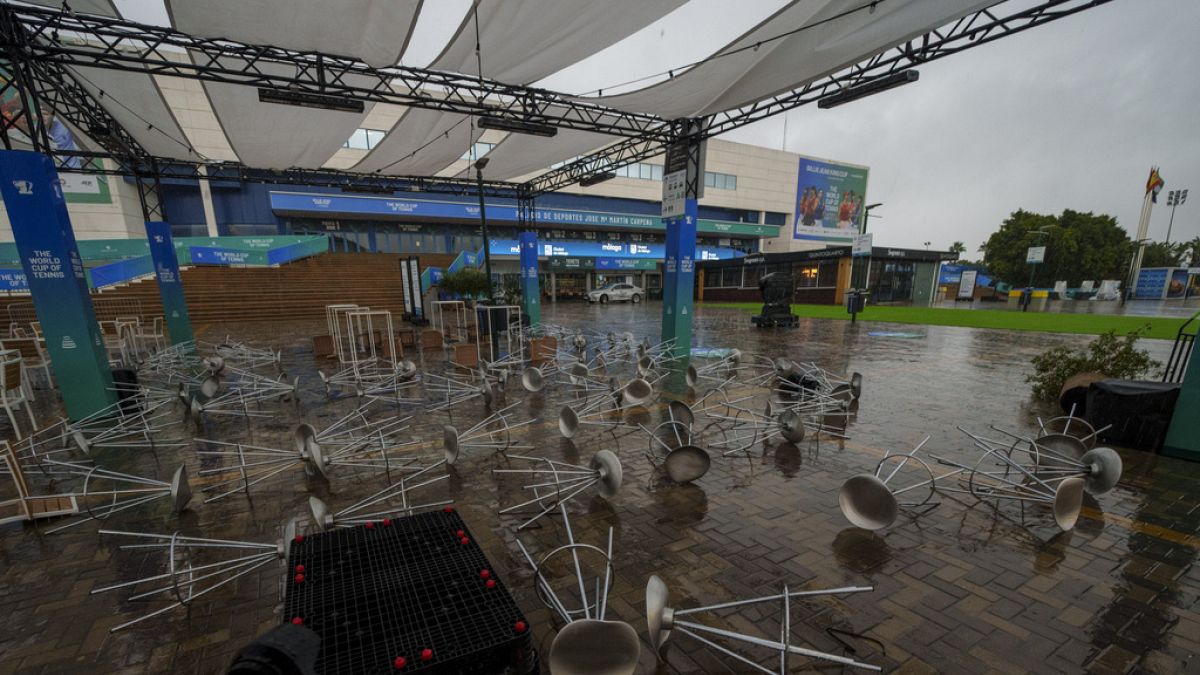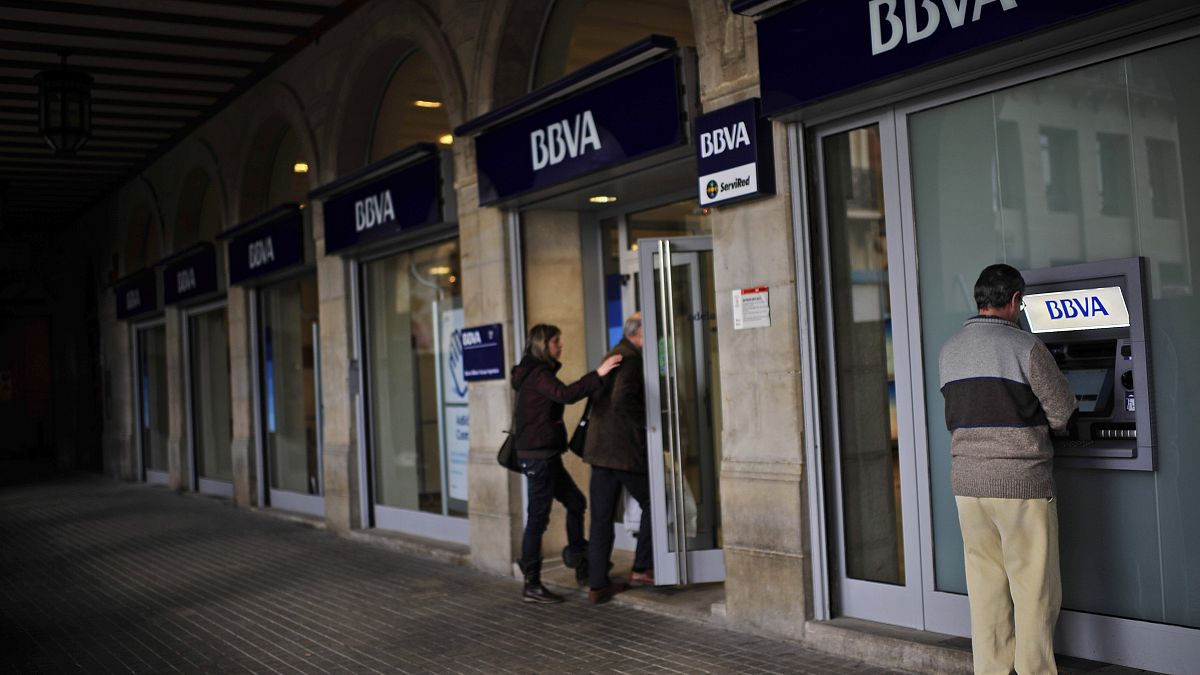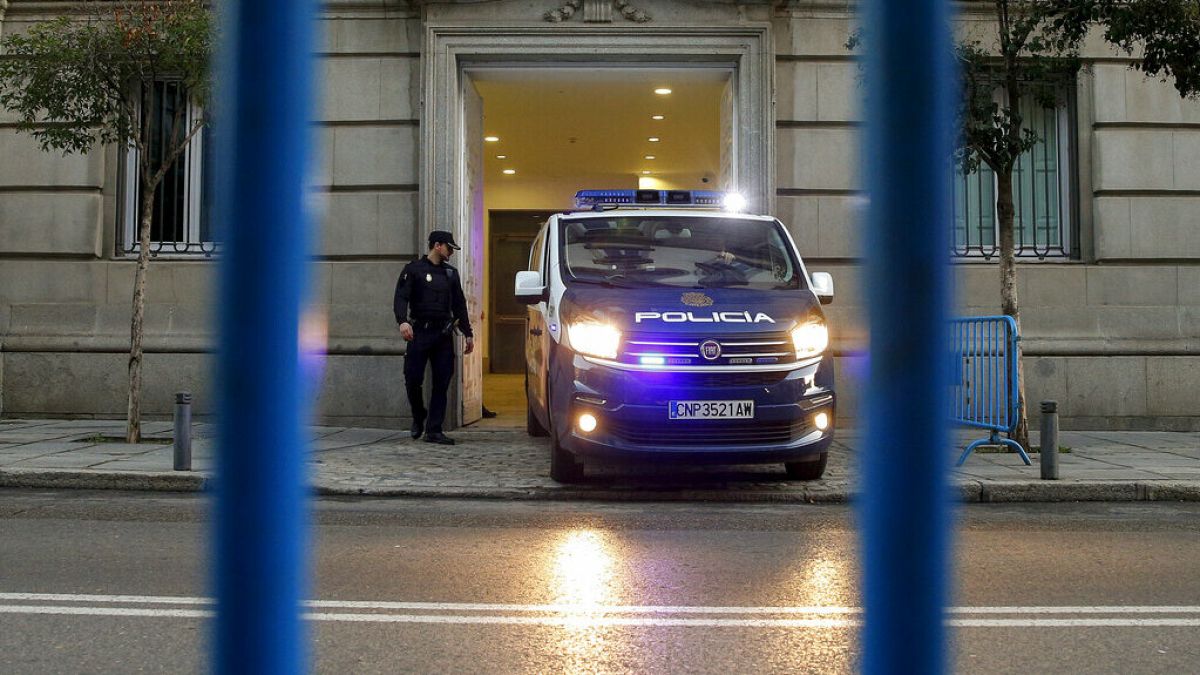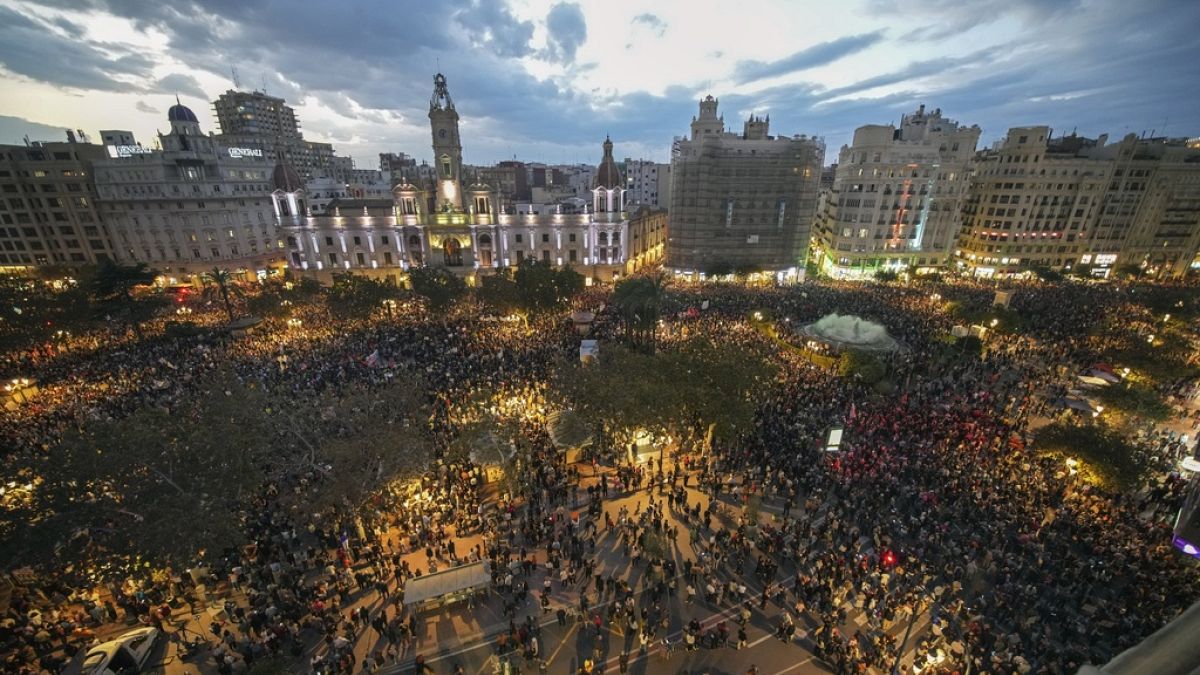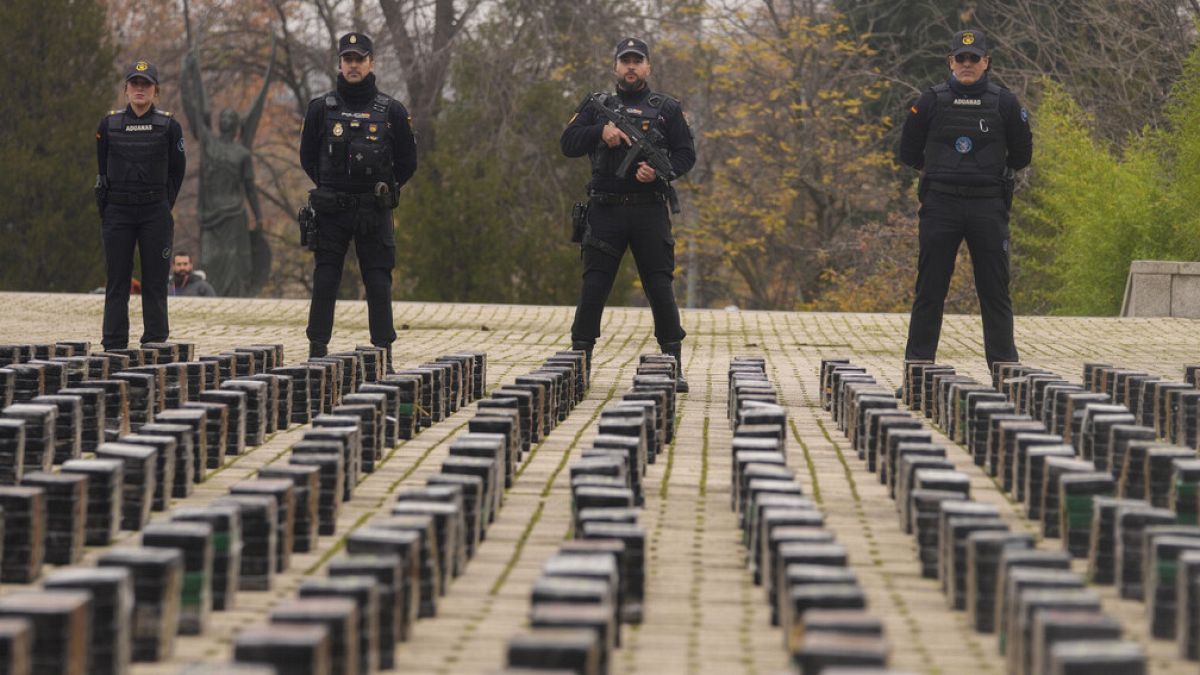What’s behind Carles Puigdemont’s seven-year exile?
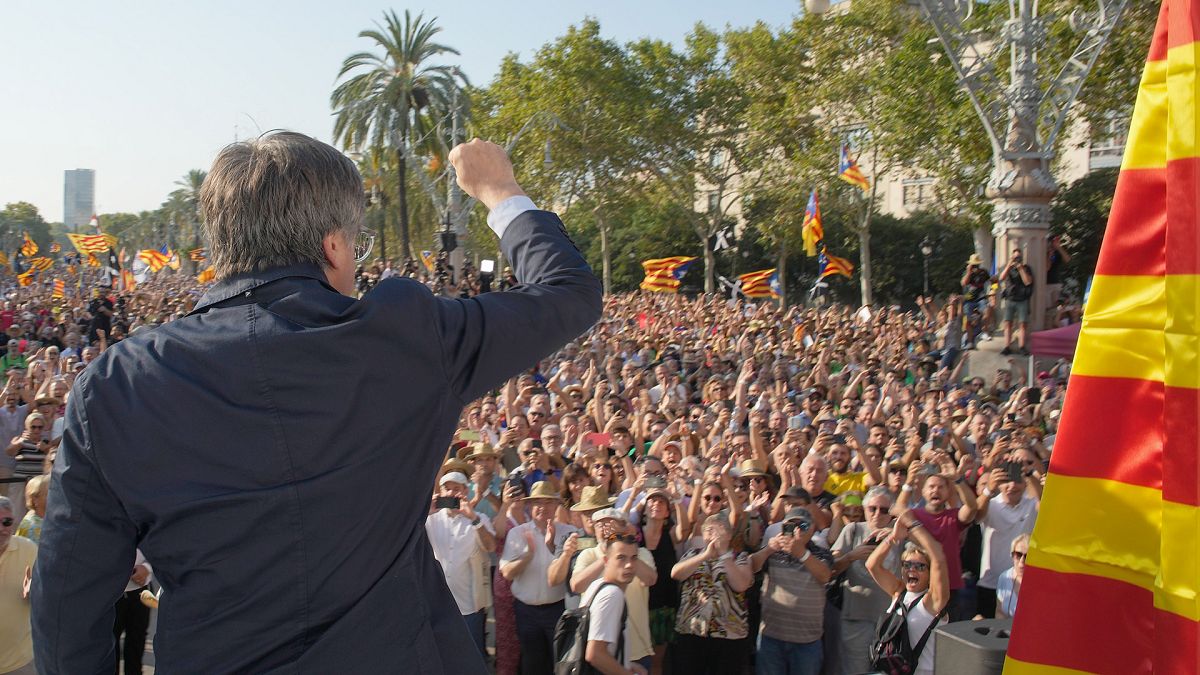
A wildcat referendum on independence and stories of dubious Russian connections saw the Catalan leader flee the country. Now, he’s back — and elusive as ever.
After nearly seven years on the run, exiled separatist Catalan leader Carles Puigdemont has returned to Spain, flying in the face of a warrant out for his arrest.
His return comes seven years after Catalonia’s unauthorised independence referendum, a vote that was not sanctioned by Spanish authorities and which attracted a notorious police crackdown.
Not long after that incident, Puigdemont smuggled himself out of the country in the boot of a car to avoid arrest, setting himself up in Brussels as successive Spanish governments sought to have him extradited to stand trial.
Earlier this week, Puigdemont posted a letter on social media network X, followed by a video, stating he intends to come back to Spain to prevent the Catalan parliament from voting in favour of a socialist-led regional government.
This prompted speculation on how he intends to enter the country despite the warrant. However, his brief appearance at his party Junts-organised rally in Barcelona on Thursday left many feeling like they’d seen a ghost of Spain’s unresolved past.
Guess who’s back
Puigdemont, who started out as a journalist for Catalonia’s pro-independence newspaper El Punt, claims to have always been in favour of the rich Spanish region’s independence.
While he enjoyed professional success, rising through the ranks of El Punt to become its editor-in-chief and later founding the Catalan News Agency, his first trouble with the law came during the 1992 Barcelona Olympics, when he was arrested for participating in an organisation supporting Catalan nationalists.
His first foray into politics saw him join the Catalan nationalist coalition Convergence and Union, successfully contesting the election results to enter the regional parliament from Girona.
A two-time mayor of Girona, Puigdemont ran the Association of Municipalities for Independence and was then chosen as pro-Catalan independence parties’ last-minute replacement for corruption-plagued Artur Mas as the region’s next president in 2016.
Known for staunch separatist stances, Puigdemont caused upheaval as the first Catalan president to refuse to take the oath of loyalty to Spain’s constitution and the monarch — standard practice prior to his appointment.
But the real trouble was only beginning to brew.
In October 2017, during his second year in office, Puigdemont decided to respond to increasingly heated exchanges with Madrid by cooking up legislation that would allow Catalonia to organise a referendum on its independence, contravening the country’s constitution.
The conservative government of Mariano Rajoy, reeling from the move, put into effect a much-criticised Operation Anubis, a sprawling police action meant to prevent the referendum and restore constitutional order.
Instead, things spiralled out of control: as Guardia Civil, or Civil Guard —the country’s gendarmerie — raided a number of Catalan government offices and other locations in the run-up to the referendum, sparking protests and strikes that ended up in clashes and arrests, and general pandemonium in Barcelona streets.
Despite this, the referendum went ahead. Undeterred by Catalan secession opponents’ boycott and a low turnout of just 43%, Puigdemont called the vote a success, pushing for a declaration of independence by the regional parliament on 27 October 2017.
This prompted the Spanish Senate to invoke Article 155 of the constitution, dismissing Puigdemont and taking full control of Catalonia. By 30 October, the Spanish attorney general charged Puigdemont and other members of the Catalan government with rebellion, sedition and misuse of public funds — carrying maximum sentences of 30, 15 and six years in jail, respectively.
The same day the charges came down, Puigdemont found himself on the way to Belgium in the boot of a car. There, he took up his seat as an MEP in the European Parliament, claiming immunity from any extradition process.
Meanwhile, the excessive use of police force to quell unrest in Catalonia tanked Rajoy’s popularity, ruining his prior reputation as a quiet if sometimes clumsy leader. Socialist Pedro Sánchez, the leading opposition figure at the time, requested a vote of no confidence on an unrelated issue.
It was only the fourth such motion voted on since Spain became a democracy following fascist dictator Francisco Franco’s death in 1971 — and was the first one to pass. Rajoy’s career was over.
Why would Puigdemont go home now?
Aside from Puigdemont’s issues with Catalonia’s new government — which will likely be completely uninterested in the region’s independence — the politics of the Catalan issue changed somewhat earlier this year, when Spain’s current government passed a highly controversial law granting amnesty to hundreds of separatists involved in the 2017 vote.
First mooted at the end of last year, the amnesty was agreed to by Prime Minister Sánchez as part of an effort to soothe tensions between Catalan leaders and the government in Madrid, and to ease the process of forming a national government.
The proposal met with outrage from protesters who did not want to see the separatist movement legitimised or forgiven — especially given that Puigdemont and several other leaders stand accused of committing assorted crimes, among them the alleged misuse of funds to finance the unsanctioned plebiscite.
It was heavily criticised by the country’s two main right-wing parties, the Popular Party and Vox, and also had critics in the ranks of Sánchez’s socialist party PSOE, some going so far as to condemn the law as unconstitutional. Nonetheless, after weeks of protest, the amnesty was finally approved by the Spanish parliament in May this year.
But soon after the law was passed, the Spanish Supreme Court ruled that it could not be applied to Puigdemont or other leaders accused of embezzlement and collaborating in a project that “affects the financial interests of the European Union” — a reference to the drop in Spain’s EU contributions that would presumably result from Catalan separation.
Yet despite this setback, Puigdemont has now suddenly returned to Spain, addressing a crowd in Barcelona before disappearing — leaving the police to hunt him down while right-wing politicians call for him to be locked up.
The Russia factor
While the Spanish state’s principal grievance against Puigdemont is his effort to stage the 2017 referendum and the disruptive impact his independence campaign has had, he and other separatist leaders also face longstanding allegations of unacceptable dealings with agents of the Russian government.
These stories came to the forefront in 2021, when Puigdemont was four years into his exile. One detailed report from the New York Times revealed that one of Puigdemont’s closest advisers, Josep Lluis Alay, had travelled to Moscow in 2019 to seek help with the independence cause.
Both Alay and Puigdemont acknowledged to the paper that the meeting had occurred but denied they were seeking help from the Kremlin, calling that claim “a fantasy story created by Madrid”.
However, in 2022 investigative outlet OCCRP and others, including Bellingcat and El Periódico, showed that Puigdemont himself held a meeting with Russian diplomat Nikolai Sadovnikov right before the Catalan independence vote in October 2017.
The investigation and documents delivered to the Spanish judiciary are said to contain proof that Sadovnikov offered Puigdemont up to “$500 billion and a small army” of 10,000 troops in return for laws favouring cryptocurrencies, in what the judge in charge of the case labelled as a Kremlin attempt to assert “political and economic influence” over an independent Catalonia.
Sadovnikov is believed to be Russian President Vladimir Putin’s trusted lead negotiator in southern Europe, a region he specialises in after having served at the Soviet and Russian embassies in Rome and Milan since 1984.
As it became increasingly clear that the conservative government of Mariano Rajoy would crack down on Catalan separatists’ attempts to split from Spain, the Kremlin was seeking to capitalise on instability in the rest of Europe with chaos in mind — a strategy that became apparent after its full-scale invasion of Ukraine in February 2022.
Since Russia ramped up its all-out war against its neighbour, European capitals and Brussels are increasingly demanding thorough investigations into Russia’s malign influence.
This February, the European Parliament voted overwhelmingly in favour of an EPP and Renew-backed resolution urging the Spanish judiciary to investigate the alleged links between Catalan MEPs and the Kremlin, including Puigdemont.
The vote came amid other Moscow-related scandals, including Russiagate, a sprawling probe into a Russian influence operation suspected to have paid sitting MEPs to spread pro-Kremlin propaganda from the heart of EU institutions in Brussels, and an investigation into Latvian MEP Tatjana Ždanoka — who openly supported amnesty for Catalan leaders — for being a Russian informant.
Junts MEP Toni Comín rejected the accusations levelled in February as “false”, claiming an independent Catalonia would have sought to become a full-fledged EU member state.
On the run
Meanwhile, Spanish divisions have come to the surface once again since Puigdemont’s brief appearance in Barcelona on Thursday.
Right after the Junts rally, held in plain sight on one of Barcelona’s busiest squares, the Catalan police, Mossos d’Esquadra, launched a search-and-arrest operation, setting up roadblocks across the city.
However, their early efforts were not a success. Instead, Mossos ended up arresting one of their own officers for allegedly helping Puigdemont escape, according to local reports.
This prompted different law enforcement agencies in Spain to start pointing fingers at each other over their collective failure to apprehend him.
The JUPOL police union accused local officers of facilitating the arrival of the separatist leader to the event. “Puigdemont has entered through the crowd thanks to the Mossos who act as escorts for Junts officials,” a post on X read.
Another police union, SUP, has demanded that the Mossos should be relieved of control of the search, suggesting that Spain’s National Police or Guardia Civil should be in charge instead.
The Mossos’ handling of the operation has been an “absolutely monumental failure” that “makes a mockery of our judicial system,” the SUP spokesperson said, according to the domestic press.
If arrested, Puigdemont will first have to face a judge who will determine whether he will remain in custody or be granted the right to defend himself outside of jail — according to the provisions of the new amnesty law.
Source: Euro News


